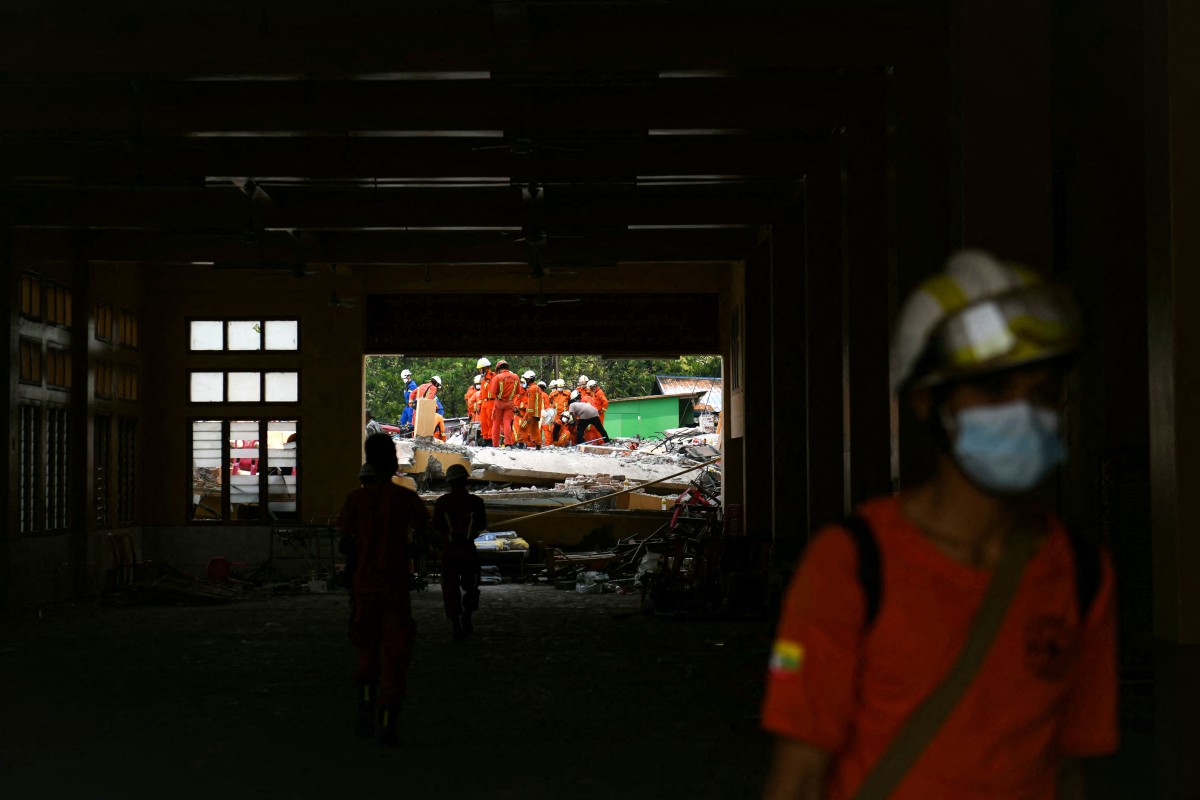A senior official of Caritas Internationalis reaffirmed the Church’s commitment to stand by the people of Myanmar following a powerful 7.7-magnitude earthquake that struck the country’s central region.
“Caritas, through KMSS (Karuna Mission Social Solidarity), has long been present in Myanmar, and we are resolute in our commitment to stand with those affected in their time of need. Together with our global confederation, we are mobilizing resources to provide urgent humanitarian relief and assist in rebuilding the lives shattered by this tragedy,” said Christian Modino Hok, Humanitarian Director of Caritas Internationalis.
The earthquake struck without warning on March 28 at 12:50 p.m. local time, with its epicenter near Sagaing, approximately 34 kilometers north of the city. It caused widespread devastation across major cities and regions, including Mandalay, Yangon, Naypyidaw, Bago, Magway, and parts of Shan State.
Religious sites, schools, hospitals, roads, airports, and power and telecommunications infrastructure were severely damaged or destroyed.
As of March 29, local media reports indicate that more than 1,600 people have been killed, over 3,000 injured, and dozens remain missing. The full extent of the disaster remains unclear due to the collapse of communication systems and limited access to the worst-hit areas.
In Mandalay, one of the hardest-hit cities, entire buildings collapsed, including the 12-story Sky Villa condominium, where residents, including children, remain trapped under debris.
The collapse of key bridges, such as the Dutthawadi Bridge near the Mandalay International Airport, has cut off critical transportation routes, further complicating rescue and relief operations.
KMSS, the national Caritas member organization in Myanmar, has activated emergency response teams amid significant challenges.
Electricity outages, blocked roads, disrupted internet, and staff displacement have hindered rapid assessments and the delivery of aid.
“Data and figures are difficult to verify in the current conditions, with challenges in data collection due to telecommunication interruptions and access constraints,” KMSS noted in its initial situation report.
Some staff in Mandalay were forced to relocate with their families to safer areas, delaying their participation in coordination meetings and emergency planning.
The Myanmar government has declared a state of emergency in multiple regions, including Mandalay, Sagaing, Bago, and parts of Shan State.
Thousands of people have spent nights outdoors, fearing aftershocks. Critical needs identified on the ground include medicines, emergency shelters, and sanitation facilities, as thousands have been displaced and are now living on the streets and in makeshift shelters.
KMSS is currently coordinating with local authorities, Church commissions, interfaith leaders, and humanitarian partners, including UN agencies and Caritas member organizations.
Emergency funding pledges have come in from CAFOD, CORDAID, Caritas Australia, and others, while UNHCR has made non-food items available from its warehouse stock.
Flights to and from Mandalay and Naypyidaw remain suspended, and the Yangon-Naypyidaw-Mandalay highway is blocked in several areas due to collapsed bridges.







